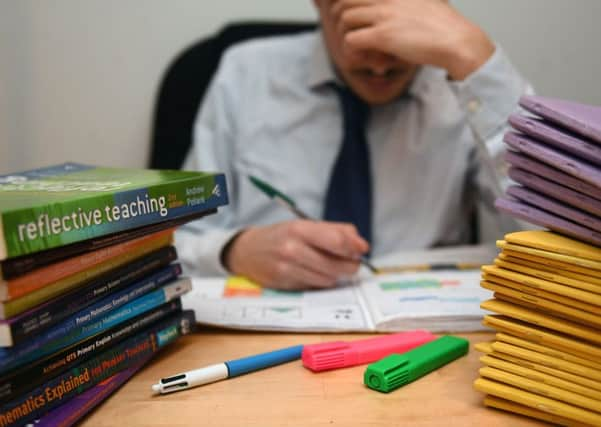Robert Halfon: Why schools and LEAs must do more to help excluded pupils


The latest Government statistics show that pupils with special educational needs account for around half of all permanent and fixed-period exclusions, and pupils who are eligible for free school meals account for 40 per cent of all permanent exclusions.
Ofsted has warned that half the 19,000 pupils who left a school between year 10 and year 11 in 2017 did not reappear on the roll of another state school, and it is currently looking at around 300 schools that have high numbers of pupils leaving in years 10 and 11.
Advertisement
Hide AdAdvertisement
Hide AdThese are the pupils the Education Select Committee is concerned about: pupils with special educational needs whom schools exclude because they cannot meet their needs, or without having tried to meet their needs; pupils whose results might have a negative impact on their school’s Progress 8 score and are therefore encouraged to move to a different school; victims of bullying who are moved to internal exclusion; and pupils who are excluded for minor infringements of a uniform policy.
We are concerned that those pupils and their parents are vulnerable to poor choices, hasty decisions and a lack of knowledge about their options.
To be clear, we are not saying that schools should not exclude pupils, or that schools must include pupils who are violent and dangerous and pose a threat to the safety of the school, but we do say that schools should be inclusive.
They should support children with additional needs, not off-roll or exclude them without trying to meet those needs. If they do exclude, they should remain accountable for their pupils’ results, which we hope will encourage schools to think much more carefully about the type of provision that they are sending their pupils to.
Advertisement
Hide AdAdvertisement
Hide AdOur report looked not just at the reasons why pupils are excluded and attend alternative provision but at how alternative provision is commissioned and how pupils are referred to it.
Unfortunately, we found that while many pupils have excellent experiences, that is not true across the board. There are real weaknesses in the system that educates some of our most vulnerable children. We do not think that pupils should not go to alternative provision, but we do believe that pupils who need to be there should attend, and that they should do so at the right time. We spoke to young people during our inquiry who said that it took failed moves and internal isolation before they found a suitable place to go to school.
We see our report on this issue and its recommendations as a bill of rights for pupils and their parents. We believe that if our recommendations are implemented, the experience of pupils in alternative provision will improve. That is why we are calling for more information for parents and pupils; an inclusion measure to incentivise schools to be more inclusive; changes to the weighting of Progress 8 and other accountability measures; and a senior person in local authorities, similar to the existing role of the virtual school head for looked-after children, to champion these pupils and oversee the decisions being made by schools.
We know that 82 per cent of teachers in alternative provision are qualified, compared with 95 per cent in mainstream schools. Vacancies are between 100 and 150 per cent higher in alternative provision than in mainstream schools, and pupils in alternative provision and special schools are twice as likely as their peers in mainstream schools to be taught by a supply teacher.
Advertisement
Hide AdAdvertisement
Hide AdTeachers are inspirational, and children in alternative provision deserve to be taught by inspirational teachers. Many of them are, but alternative provision is too often seen as the poor relation. We think that trainee teachers should experience an alternative provision or special school setting, and that mainstream schools should buddy with alternative provision schools so that they can share expertise, experiences and training.
There are also pupils who are being taught in unregistered provision, and we are concerned that there is not sufficient oversight across the board to ensure that pupils who are attending are receiving high quality, safe schooling. But we recognise the importance of it, and we recommended that any provider which wants to educate pupils for more than two days a week should be registered.
Pupils in alternative provision should not be written off. No matter the reason for their attending, they deserve access to a high-quality education and to qualifications of which they can be proud. They deserve the chance to climb the ladder of educational opportunity, but at the moment we are providing too many pupils in alternative provision with a ladder whose rungs are too far apart, not closer together.
Robert Halfon is a Tory MP and chairman of Parliament’s Education select Committee. He presented a report on school exclusions to the House of Commons – this is an edited version.